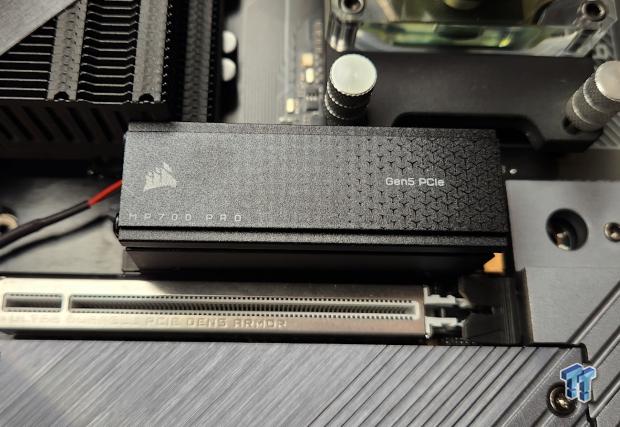
The Bottom Line
Pros
- + Elegant cooling option
- + Gaming
- + User experience
Cons
- - Not PS5 compatible
Should you buy it?
AvoidConsiderShortlistBuyIntroduction & Drive Details
Corsair is upping its flagship Gen5 performance from 10,000 MB/s to a mouthwatering 12,400 MB/s. Corsair's newest speedster, designated MP700 Pro, is set to compete the likes of Crucial's T700 and TeamGroup's Z540 as the fastest retail solid-state storage offerings in history.
Most are aware, but we will reiterate in case some still are not - all consumer PCIe Gen5 SSDs made to date are powered by Phison's E26 controller. Additionally, all are arrayed with Micron 232-Layer B58R flash. This is why the performance between different brand E26-controlled SSDs of the same capacity and throughput class are similar.
As mentioned, our test subject for today is Corsair's second PCIe Gen5 offering, with the first being the 10,000 MB/s class MP700. The proliferation of E26-controlled SSDs is rolling out in stages: 10,000 MB/s class, 12,000 MB/s class, and sometime down the road, 14,000 MB/s.
The reason behind the throughput stepping comes down to flash speeds and flash availability. The Micron B58R, which is exclusively paired with Phison's E26 controller, is the world's best-performing flash and, in fact, the main driver of the unprecedented performance generated by E26-controlled SSDs. 1,600 MT B58R will deliver 10,000 MB/s, 2,000 MT B58R will deliver 12,000 MB/s, and down the road, 2,400 MT flash will deliver 14,000 MB/s.
Corsair's 10,000 MB/s capable MP700 was not offered with a heatsink. Instead, Corsair left it up to the user to provide adequate cooling, which is fine for more savvy users but can potentially cause issues for uninformed novices. This time around, Corsair is offering its 12,400 MB/s capable MP700 Pro as a bare drive or with an elegant-looking actively cooled heatsink.
We have the heatsink version strapped to our test bench, so let's put it to the test and see if Corsair's custom-designed heatsink cools as well as it looks:
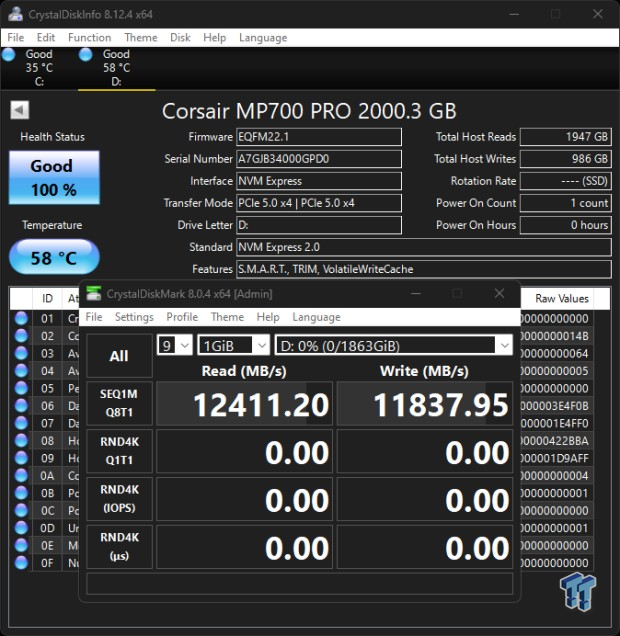
Excellent. Two back-to-back iterations of CDM x9 sequentials are enough to fry any PCIe Gen5 SSD that's not adequately cooled. Our MP700 Pro is, as evidenced by a top temp of 58c, very well cooled. Additionally, we didn't notice any noise pollution emanating from our test subject. Impressive.
Drive Details
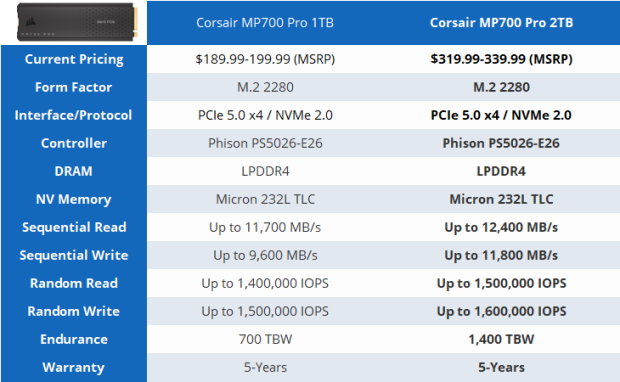
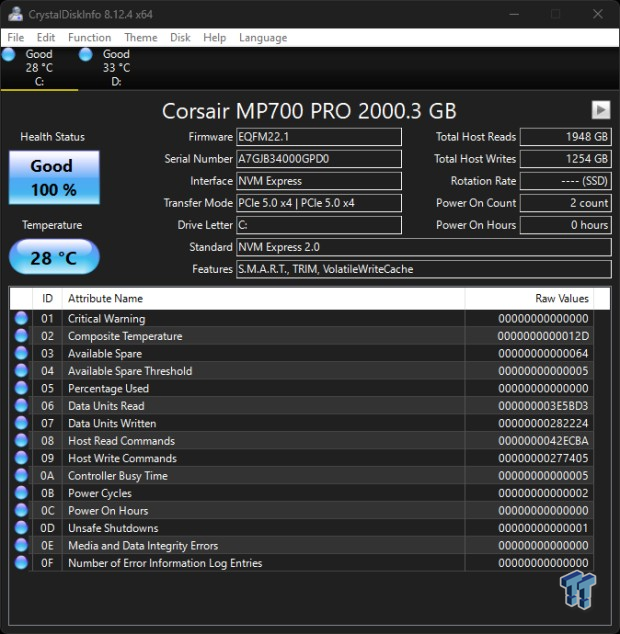
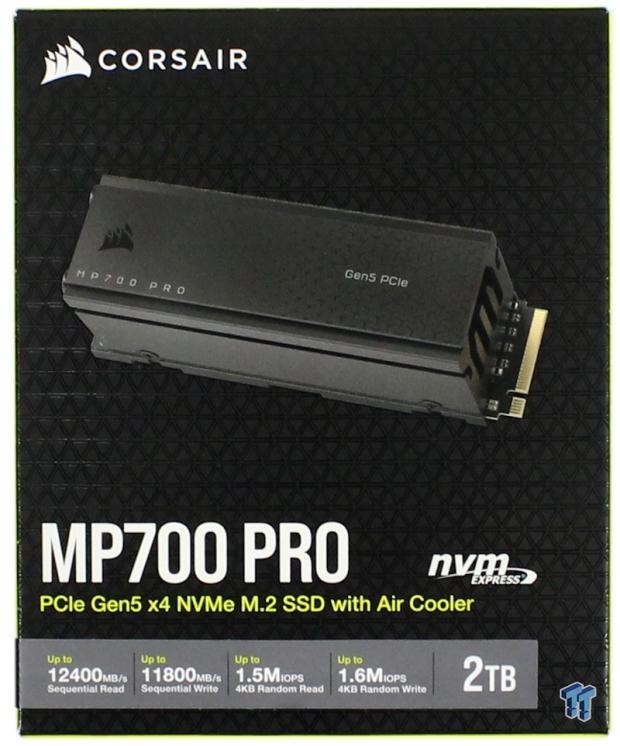
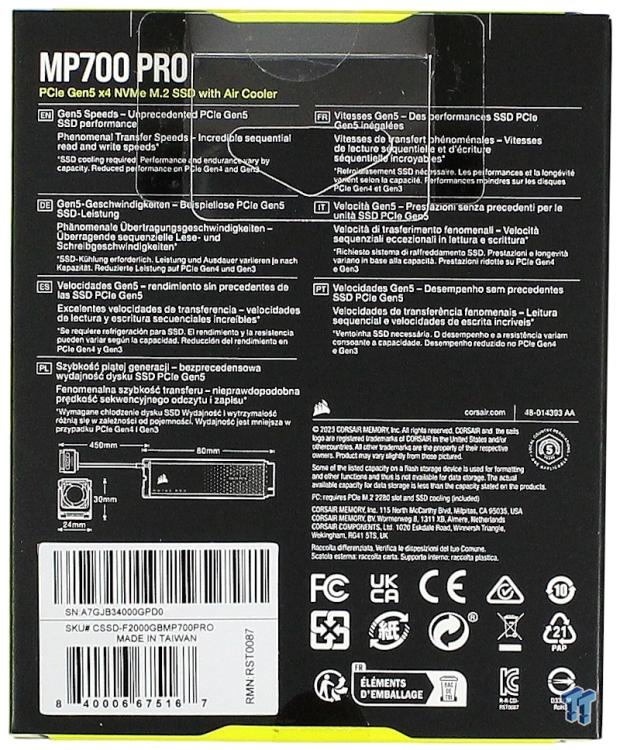


All we have at this point is MSRP pricing, but we do expect to see street pricing come in a bit lower, especially considering the current market.
Jon's Test System Specifications
Intel Test System
- Motherboard: GIGABYTE AORUS Z790 Xtreme X
- CPU: Intel Core i9-14900K - Buy from Amazon
- Cooler: Alphacool Eissturm Hurricane Copper 45 - Buy from Amazon
- RAM: Patriot Viper Xtreme 5 8000 48GB - Buy from Amazon
- Graphics Card: MSI SUPRIM X RTX 3080 12GB - Buy from Amazon
- Case: PrimoChill's Praxis Wetbench - Buy from Amazon
- Power Supply: be quiet! Dark Power Pro 12 1200W - Buy from Amazon
- OS: Microsoft Windows 11 Pro 64-bit - Buy from Amazon
AMD Test System
- Motherboard: GIGABYTE X670E AORUS Master
- CPU: AMD Ryzen 9 7950X - Buy from Amazon
- Cooler: Alphacool Eissturm Hurricane Copper 45 - Buy from Amazon
- RAM: Sabrent Rocket DDR5 32GB - Buy from Amazon
- Graphics Card: MSI SUPRIM X RTX 3080 12GB - Buy from Amazon
- Case: PrimoChill's Praxis Wetbench - Buy from Amazon
- Power Supply: be quiet! Dark Power Pro 12 1200W - Buy from Amazon
- OS: Microsoft Windows 11 Pro 64-bit - Buy from Amazon
Because we at TweakTown like to be first at everything whenever we can, we will present our storage performance results for the test subject on both 14th Gen Intel and 7000 Series AMD platforms going forward for the foreseeable future. Because Intel still delivers the best real-world storage performance, (Look Here), our running chart will continue to be Intel-based until AMD can deliver better real-world storage performance than its rival.

Corsair MP700 PRO with Air Cooler 2TB M.2 PCIe Gen5 x4 NVMe 2.0 SSD
Synthetic Benchmarks: CDM, Anvil, ATTO
CrystalDiskMark
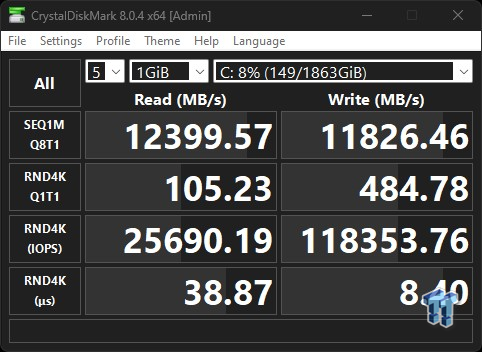
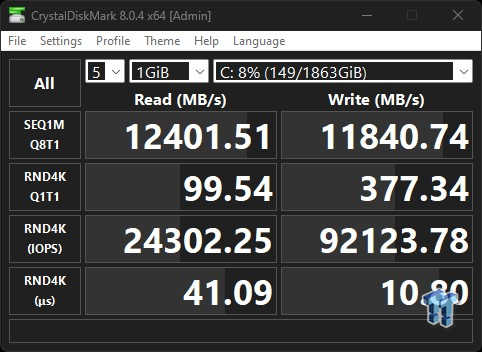
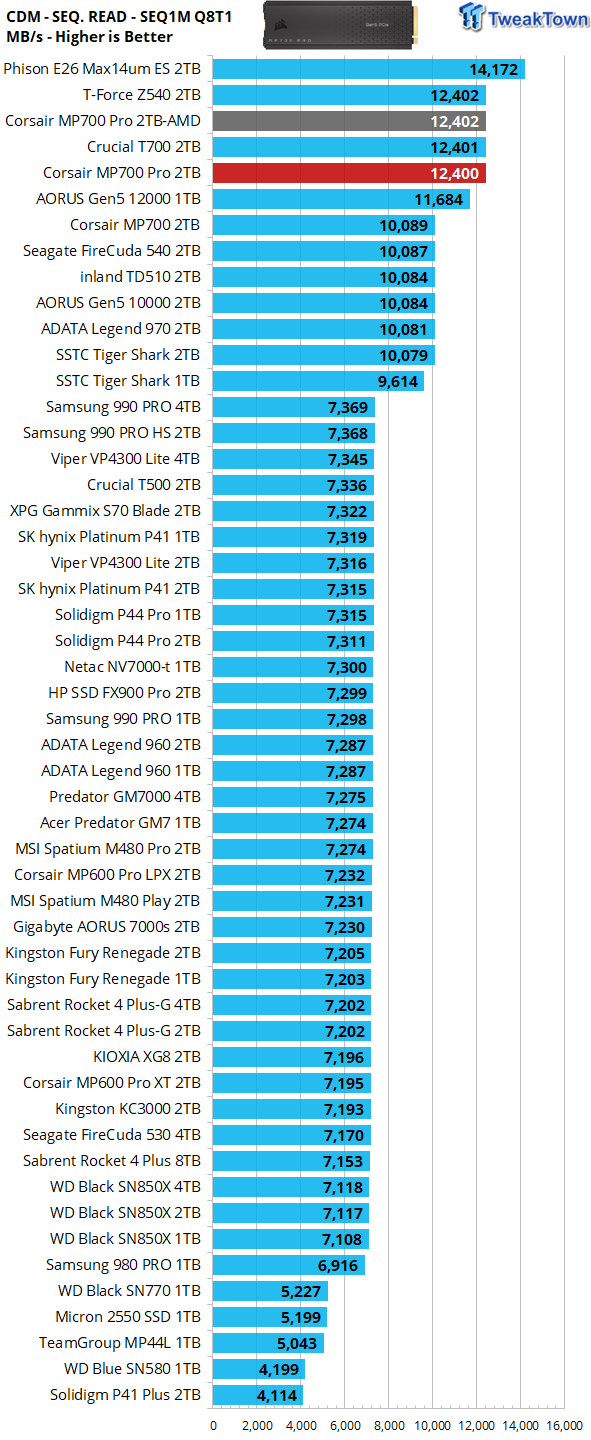
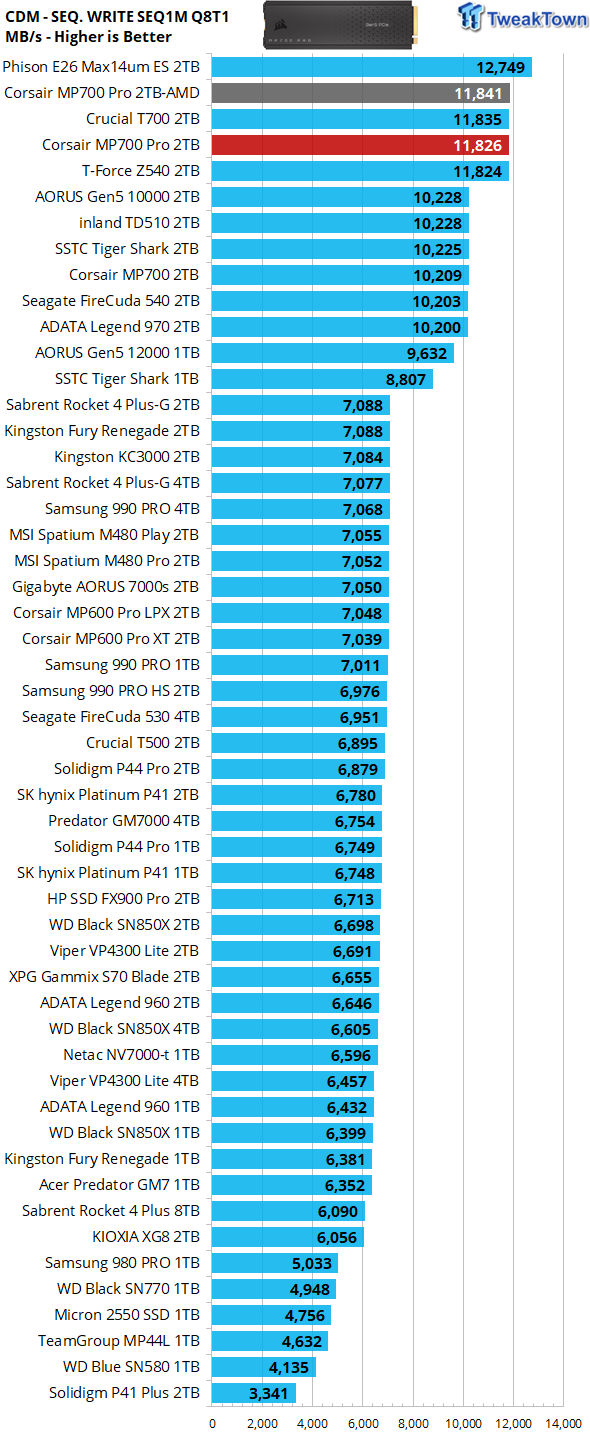
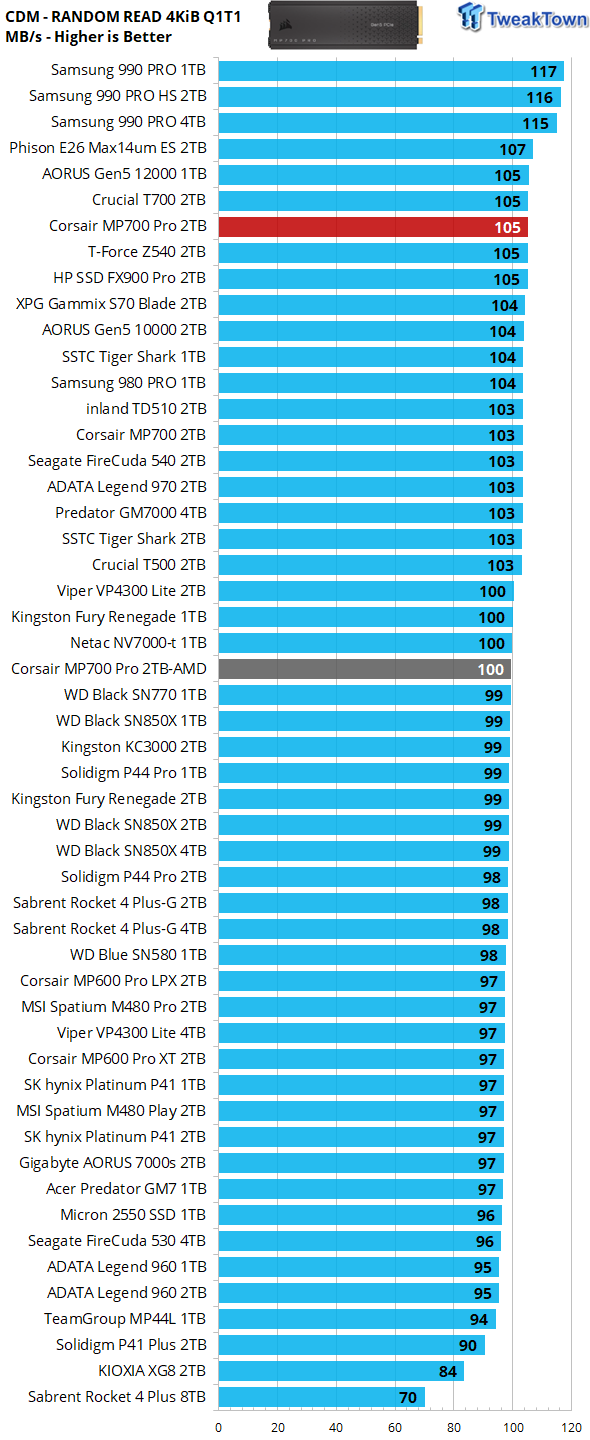
We employ CDM as our standard measurement for both sequential throughput and Q1T1 random read. Corsair specs its 2TB MP700 Pro SSD as capable of up to 12,400 MB/s sequential read throughput and up to 11,800 MB/s sequential write throughput. Our test subject delivers as advertised. Impressive. Q1T1 random read is exactly the 105 MB/s we've come to expect from 12,000 MB/s class drives.
Anvil's Storage Utilities
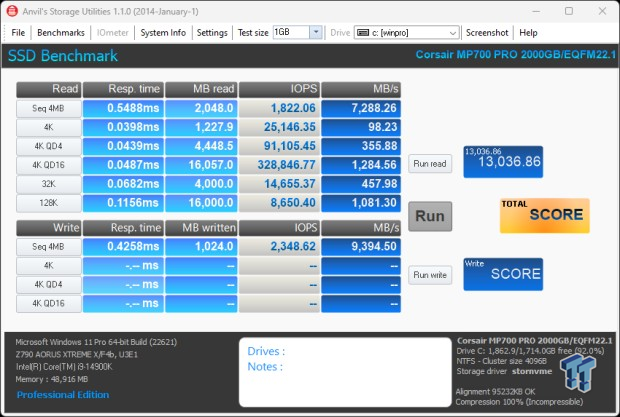
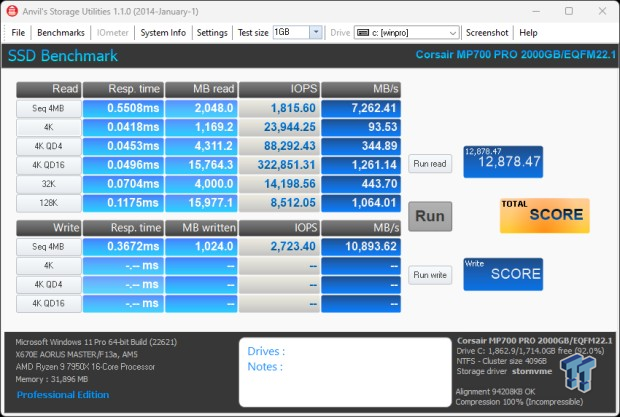
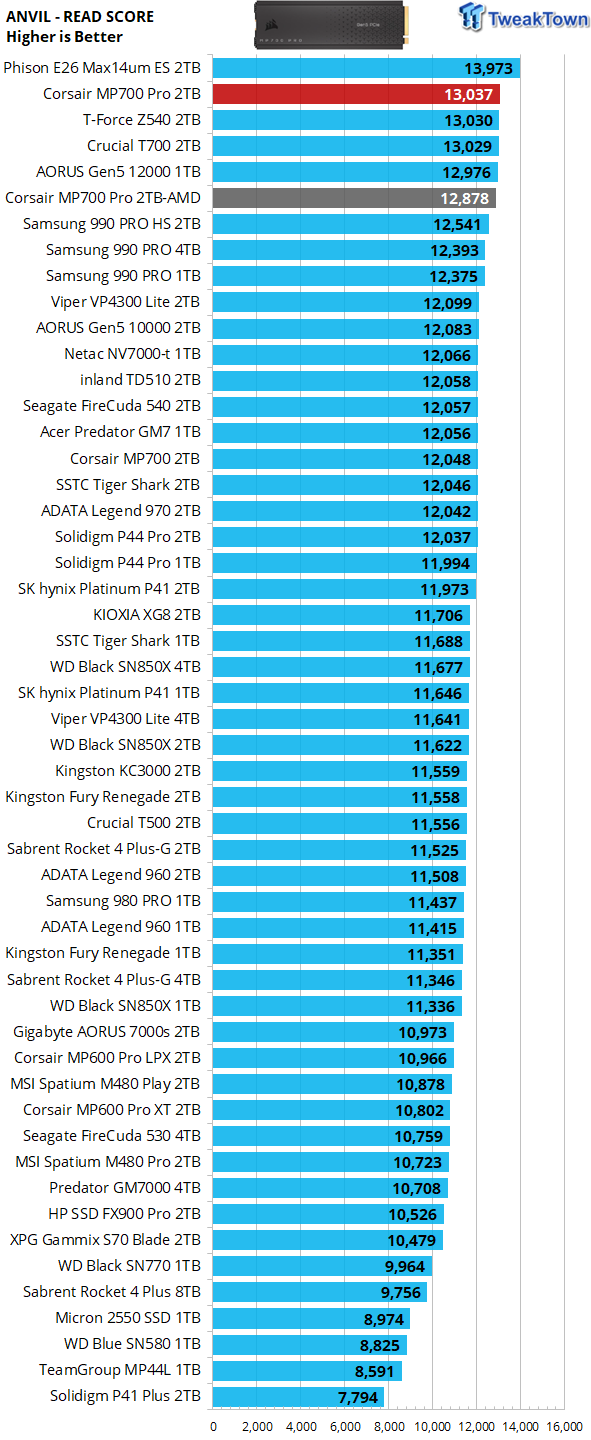
Our test subject rewards us with the highest score we've obtained to date from a retail consumer SSD. It's only a few points more than the other two similarly configured E26 competitors, but nevertheless, it is a new lab record. Nice.
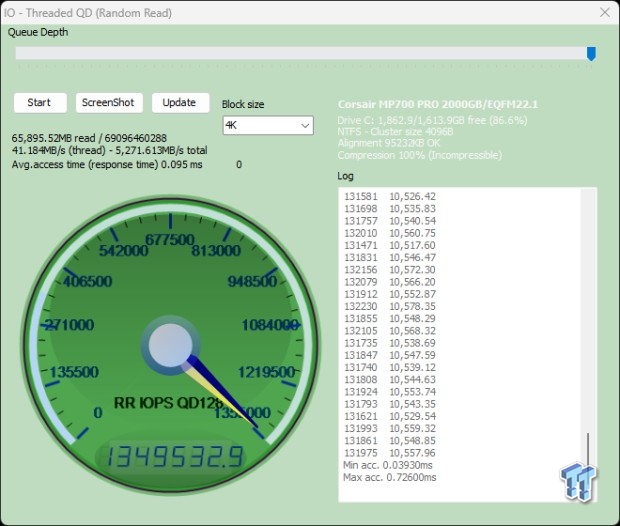
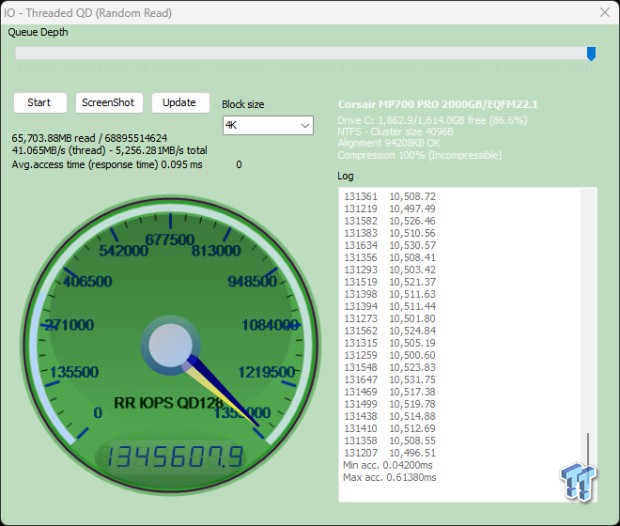
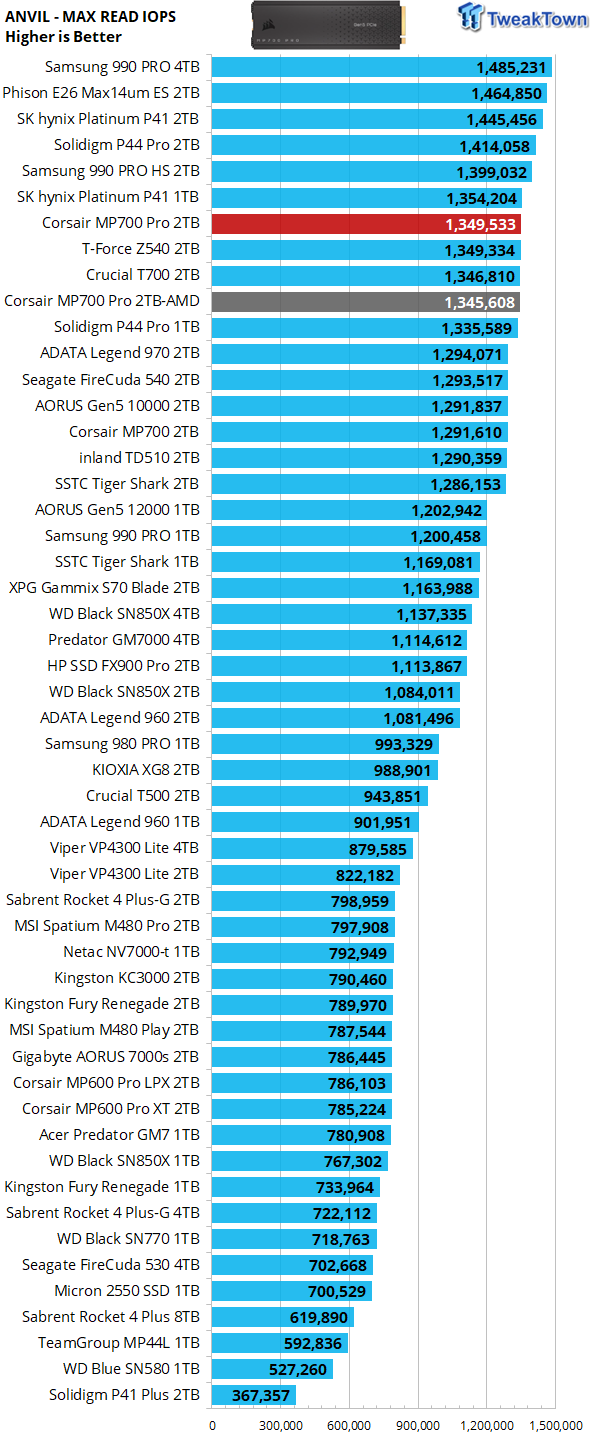
We employ Anvil's random read test as our standard for measuring max random read IOPS. This test is very accurate as it at its core is Iometer skinned over. We test at QD128. We come up a bit short of the drive's quoted up to specs being 1.5 million RR IOPS. However, it is, and again by just a few IOPS, a new high mark for a retail E26-controlled SSD.
ATTO
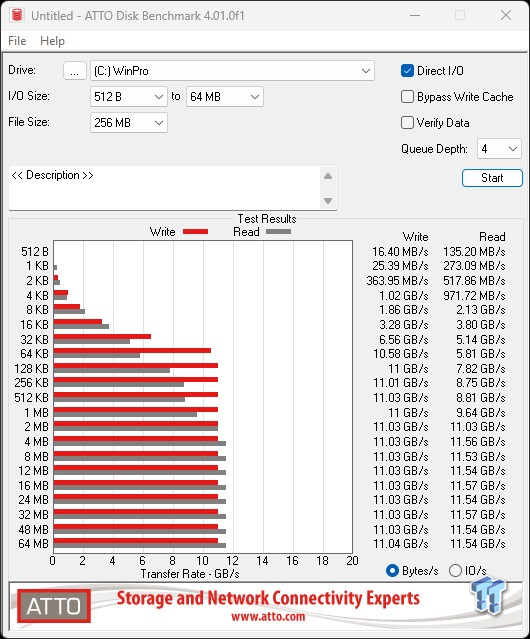
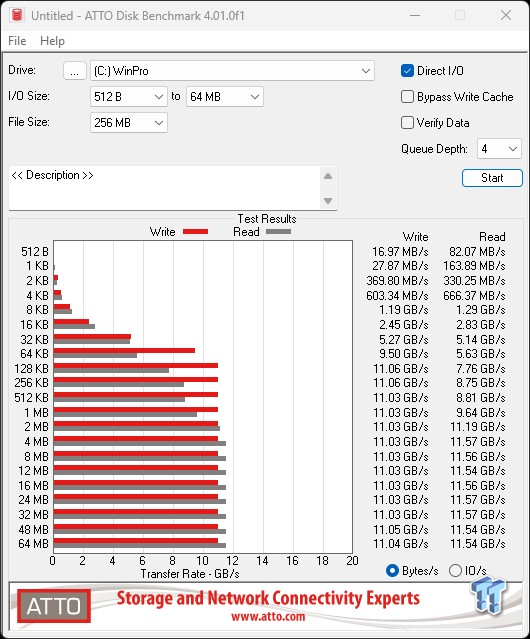
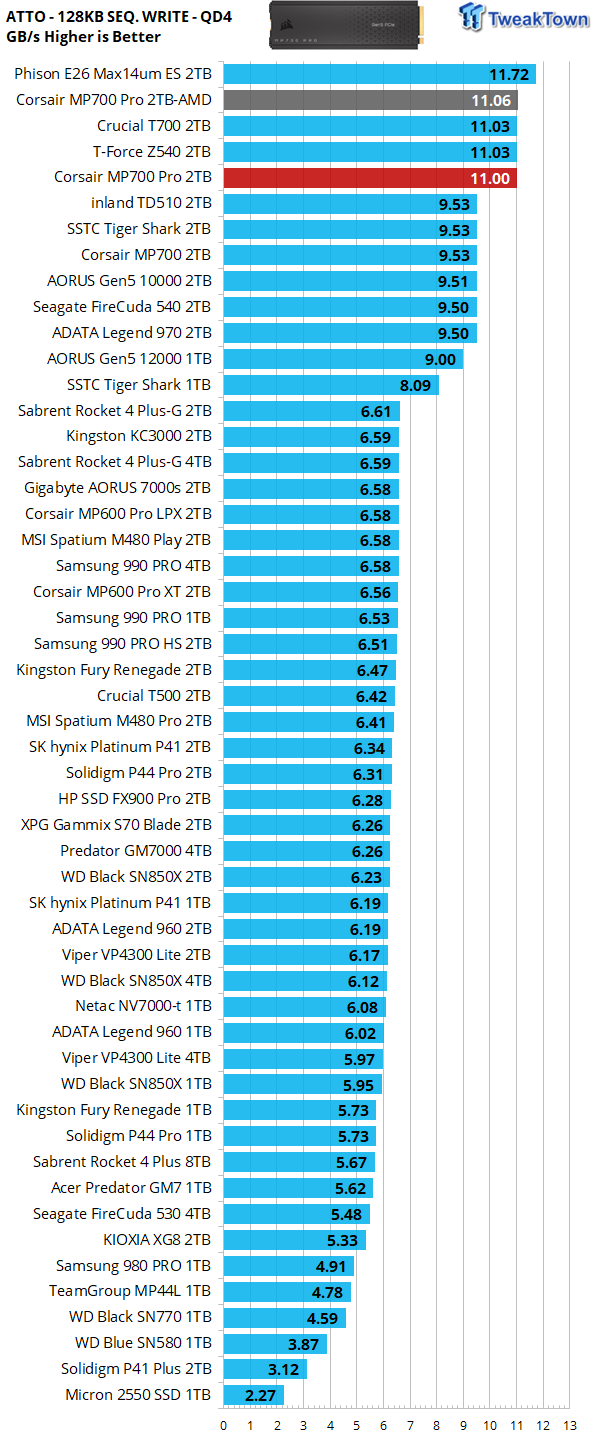
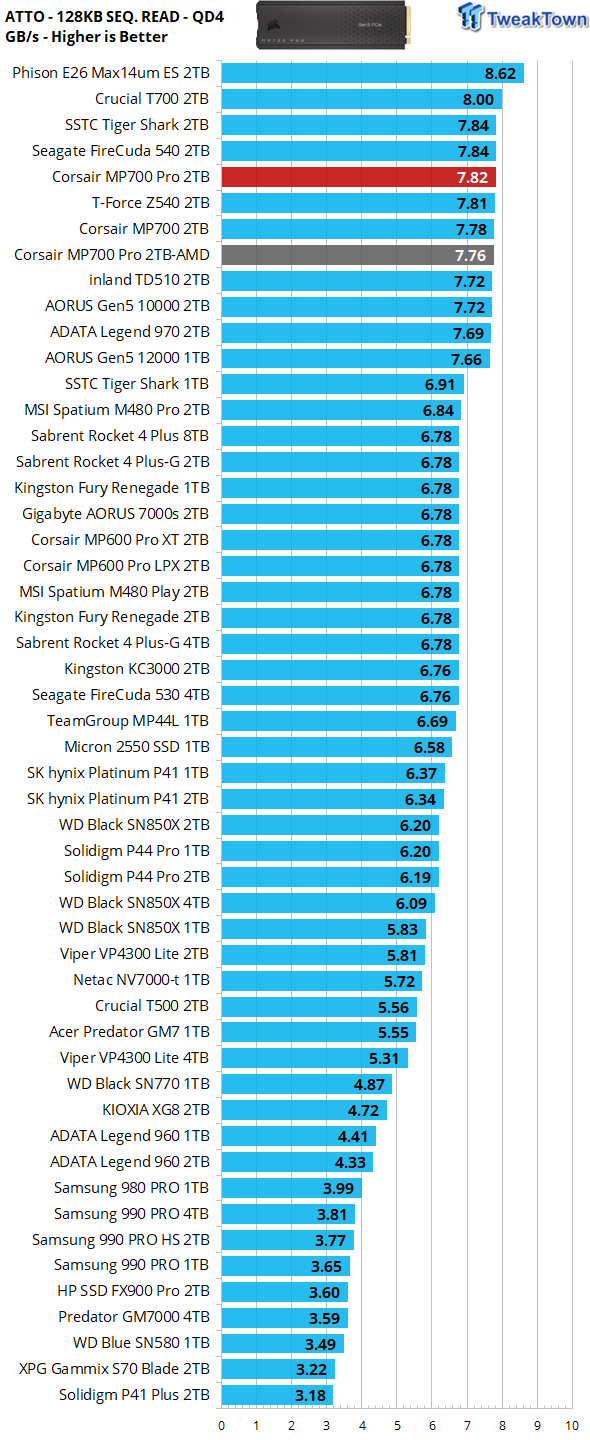
ATTO gives us a clear picture of what transfer sizes a particular SSD favors in terms of QD4 sequential throughput. Our test subject favors sequential transfers of 4MB or larger when serving data to the host (reading) and 128K or larger when programming (writing) data.
Real-World Testing: Transfers, 3DMark SSD Gaming Test, PCM10 Storage
Transfer Rates
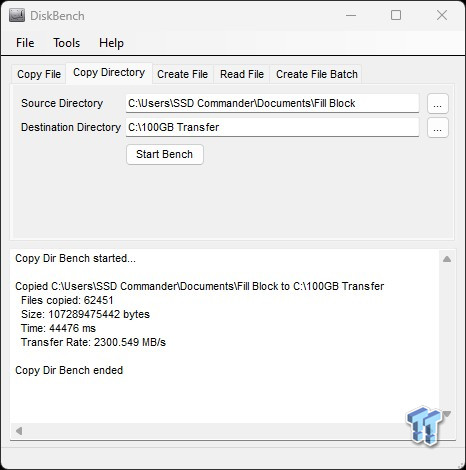
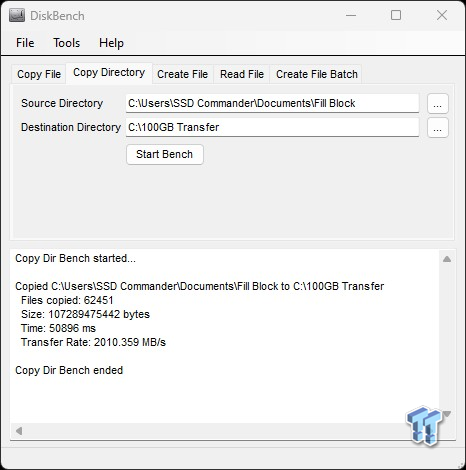
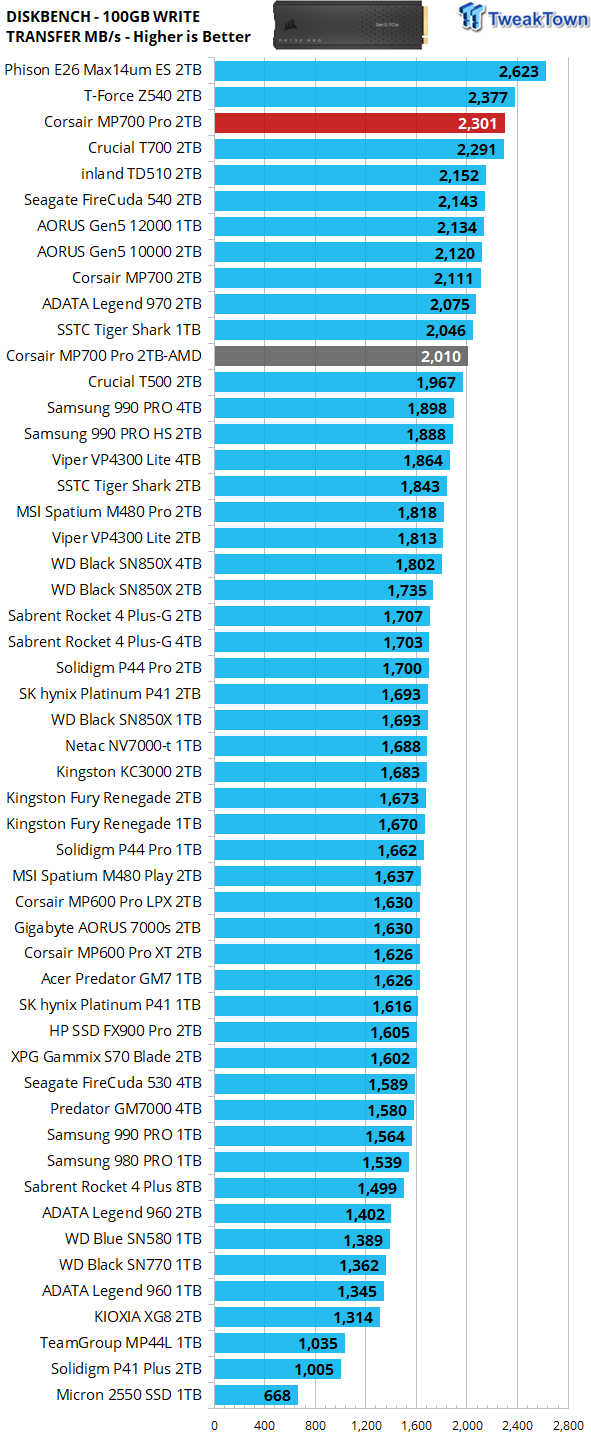
Our 100GB data transfer test is not your ordinary 100GB of data. Ours is a crushing mix composed of more than 62K files. Write performance random or sequential, is an infrequent operation, and as such, we do not consider it to be an important performance metric in the consumer space. An example being how many times is a game installed vs. how many times it's played. Second best for a retail flash-based SSD.
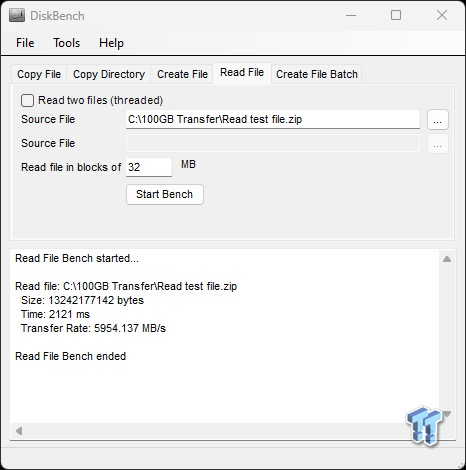
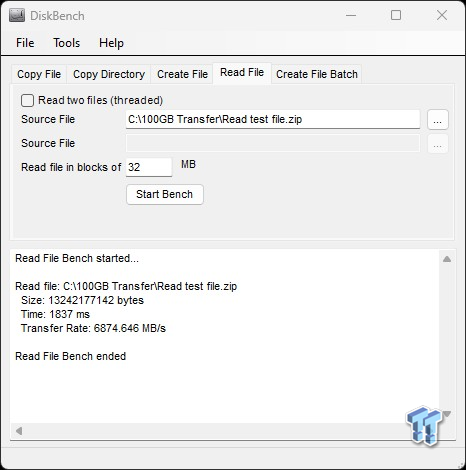
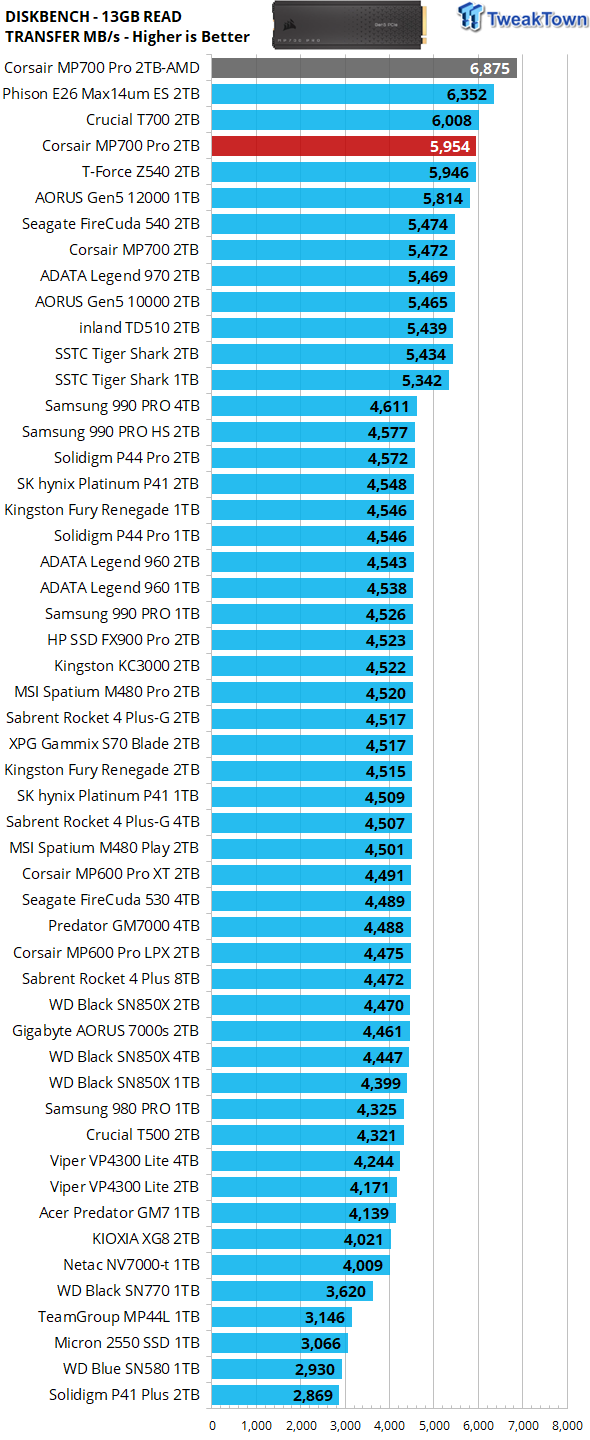
Unlike programming (writing) data, serving data to the host (reading) data is always an important performance metric, and here again, our test subject does it at the highest level. Again, second best to date for a retail SSD. Nice.
3DMark SSD Gaming Test
UL's newest 3DMark SSD Gaming Test is the most comprehensive SSD gaming test ever devised. We consider it superior to testing against games themselves because, as a trace, it is much more consistent than variations that will occur between runs on the actual game itself. This test is in fact the same as running the actual game, just without the inconsistencies inherent to application testing. In short, we believe that this is the world's best way to test an SSD's gaming prowess and accurately compare it against competing SSDs. The 3DMark SSD Gaming Test measures and scores the following:
- Loading Battlefield V from launch to the main menu.
- Loading Call of Duty Black Ops 4 from launch to the main menu.
- Loading Overwatch from launch to the main menu.
- Recording a 1080p gameplay video at 60 FPS with OBS (Open Broadcaster Software) while playing Overwatch.
- Installing The Outer Worlds from the Epic Games Launcher.
- Saving game progress in The Outer Worlds.
- Copying the Steam folder for Counter-Strike Global Offensive from an external SSD to the system drive.
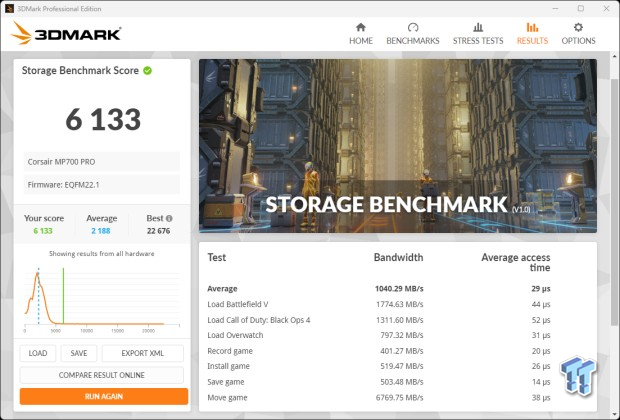
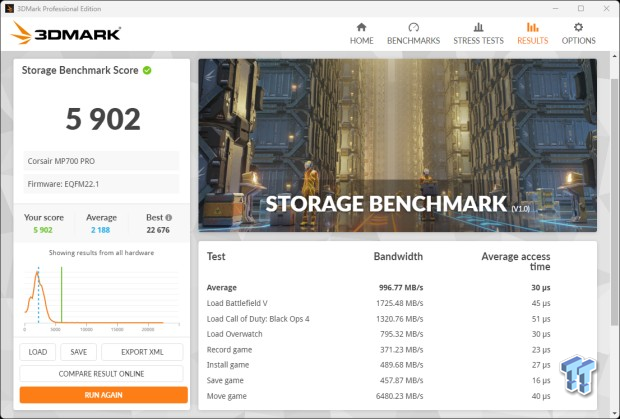
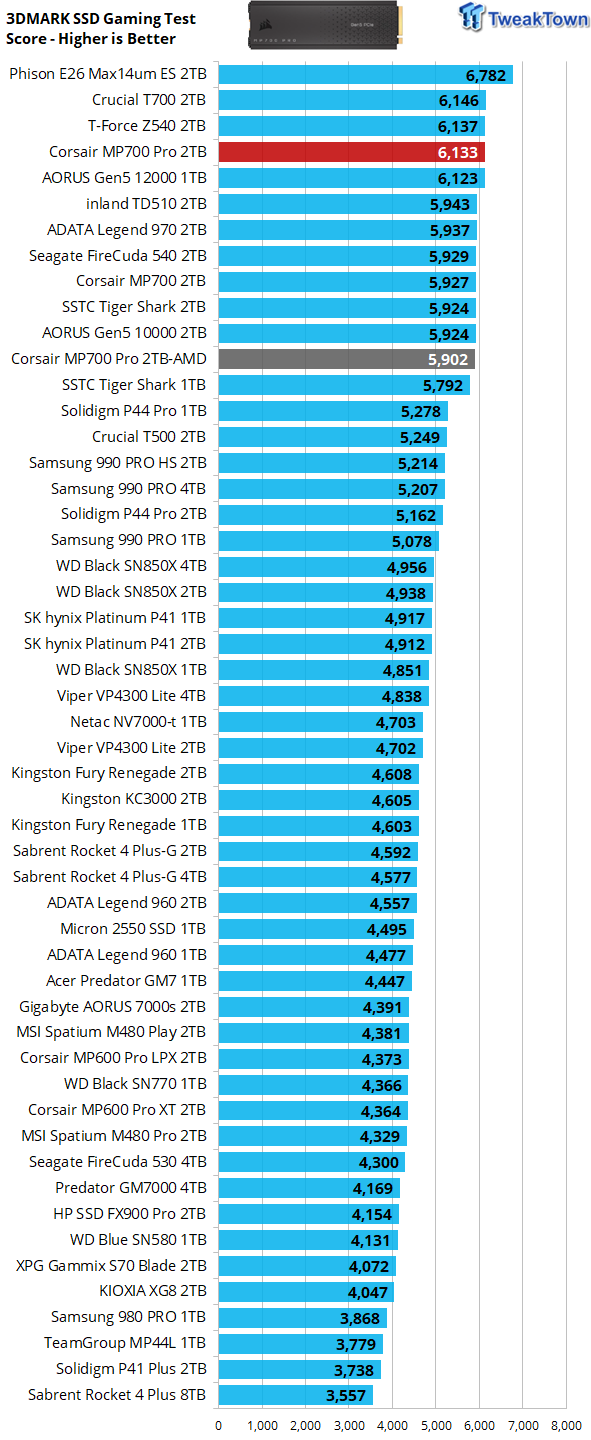
Gaming is a performance metric that matters to most DIY consumers, especially to the enthusiast crowd that TweakTown caters to. 6,100 points here is exactly what we want to see. This is as good as it gets for a retail flash-based gaming SSD. Additionally, and worthy of mention here, the MP700 Pro has Phison's exclusive I/O+ DirectStorage enhancing technology baked right in, making it a superior choice for gaming duties.
PCM10 Storage Tests
PCMark 10 Storage Test is the most advanced and most accurate real-world consumer storage test ever made. There are four different tests you can choose from; we run two of them.
The Full System Drive Benchmark and the Quick System Drive Benchmark. The Full System Drive Benchmark writes 204 GB of data over the duration of the test. The Quick System Drive Benchmark writes 23 GB of data over the duration of the test. These tests directly correlate with mainstream user experience.
PCMark 10 Full System Drive Benchmark
This test writes 204GB data and covers a broad range of common consumer tasks, including booting Windows 10, file transfers, Adobe and Office applications, and startup times for games including Battlefield V, COD Black Ops 4, and Overwatch. Unlike synthetic numbers, this is comprehensive real-world data, which is why we use it to rank SSDs in terms of user experience.
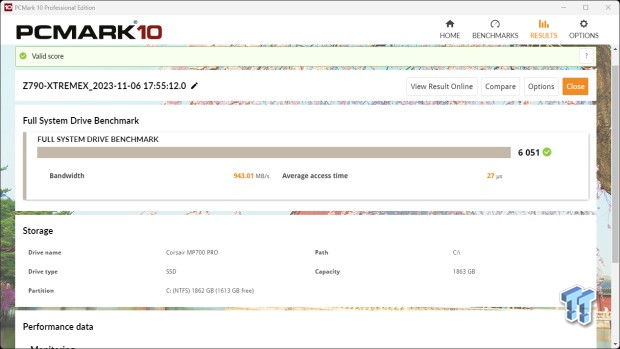
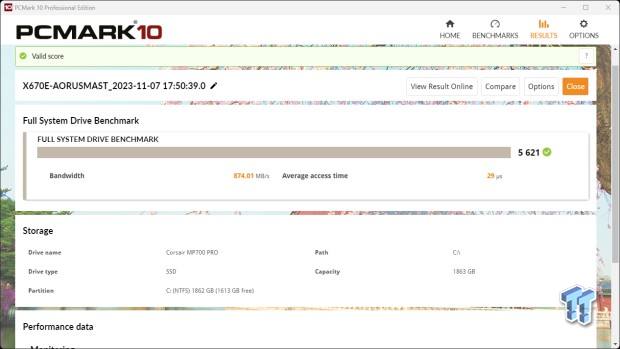
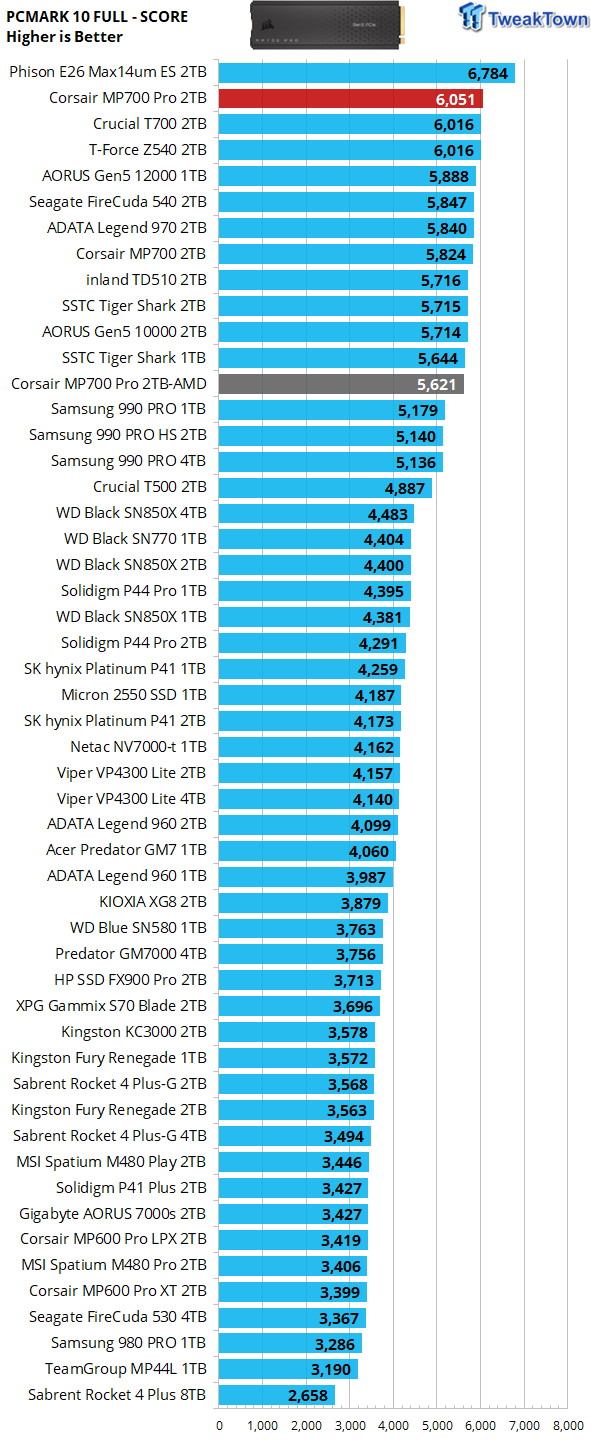
The most performance where it matters most. This is yet another lab record for Corsair's MP700 Pro. Outstanding. Our test subject is, again, by a few points, the highest performing SSD retail SSD we've tested to date.
PCMark 10 Quick System Drive Benchmark
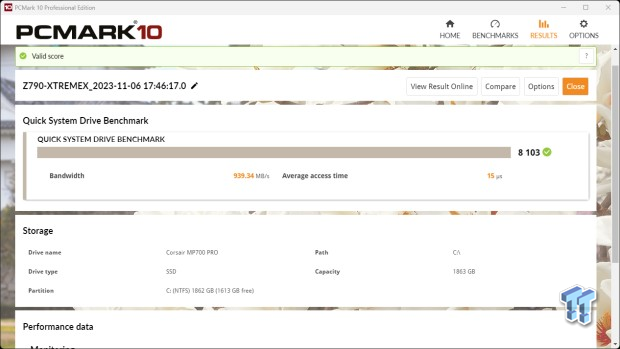
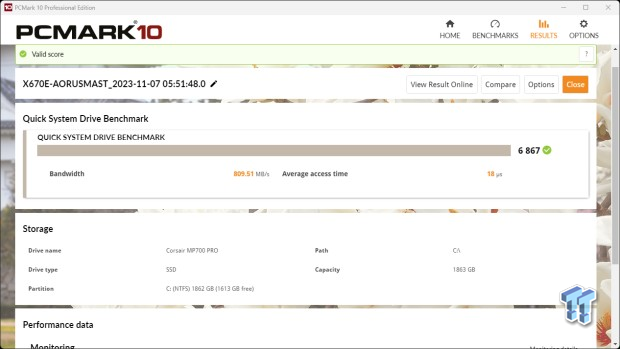
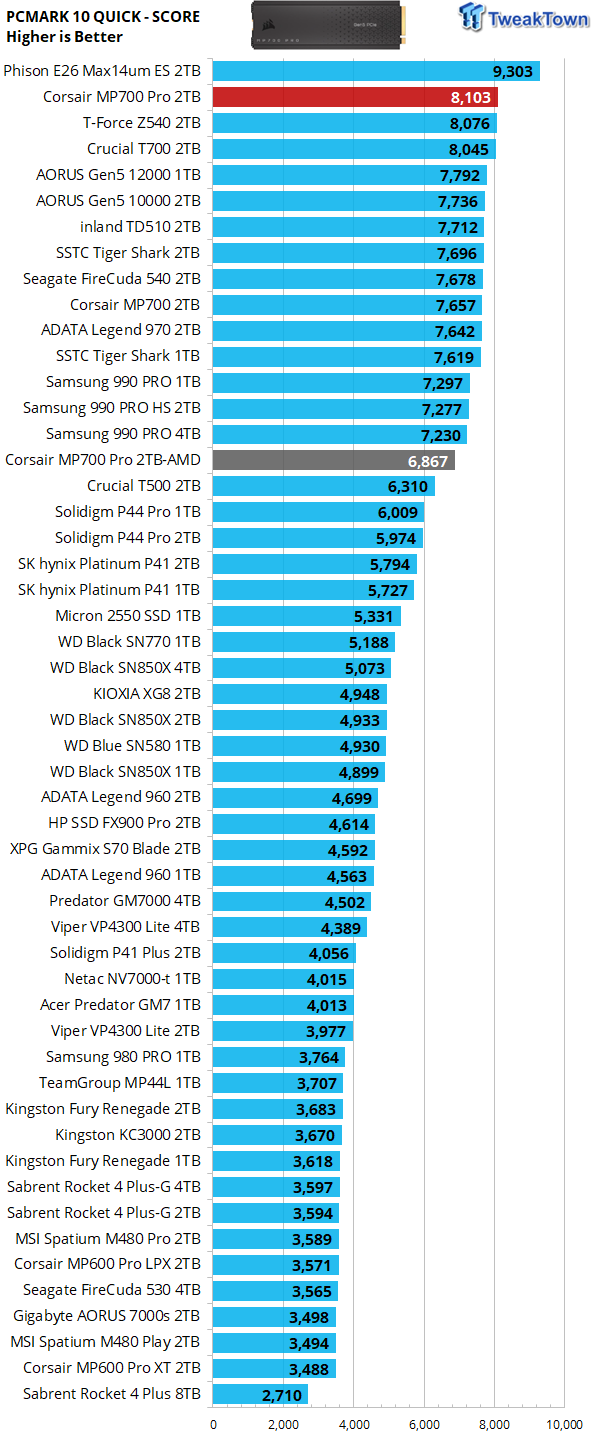
As a final parting shot, Corsair's flagship performer delivers our first-ever score of 8,100 for a retail flash-based SSD. Wow.
Final Thoughts
Corsair is a premium brand, and its newest flagship SSD is indeed something special. We are as impressed by its aesthetics as we are by its class-leading performance. 12,000 MB/s throughput is awesome, to be sure, but it's all for nothing if not effectively cooled. The MP700 Pro's actively cooled heatsink design is one of the best we've encountered to date, and if you go with that option, it takes all the guesswork out of whether you can keep the drive running throttle-free.
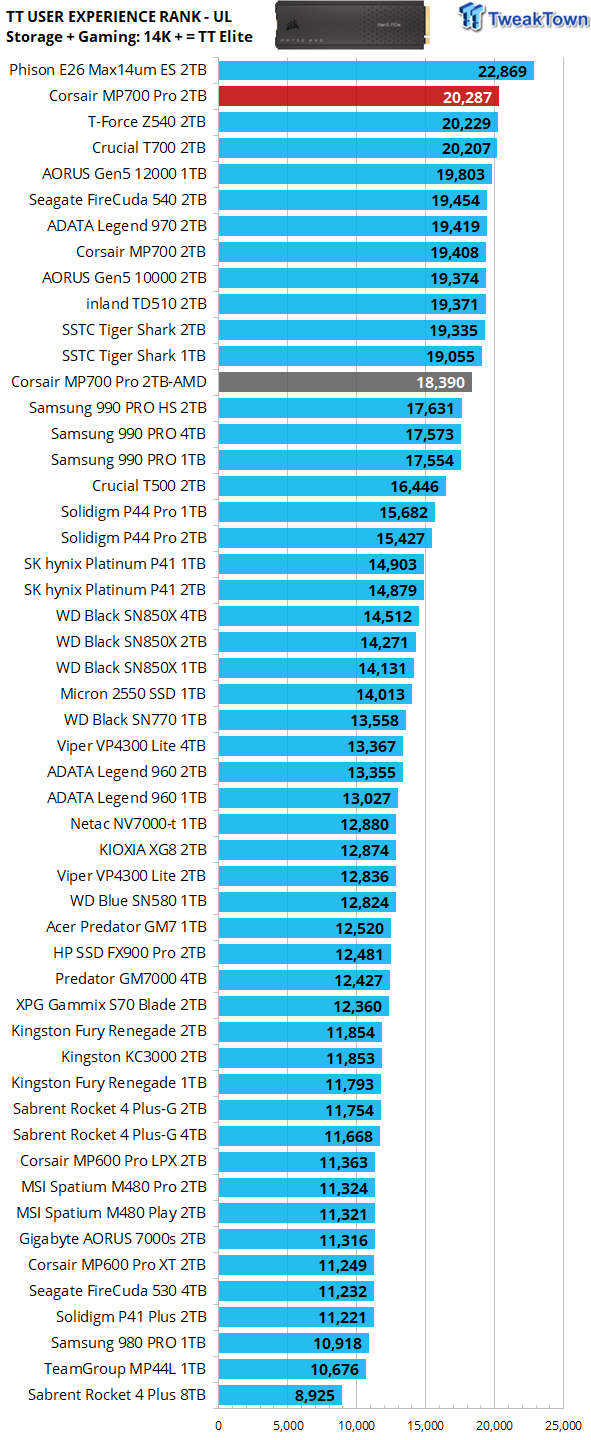
We rank SSDs in terms of overall user experience (performance where it matters most) as expressed by PCMark 10 storage and 3DMark gaming storage tests. We consider a user experience score of 14K or more to verify an SSD as a TweakTown Elite performer. Top spot for a retail flash-based SSD. Enough said.
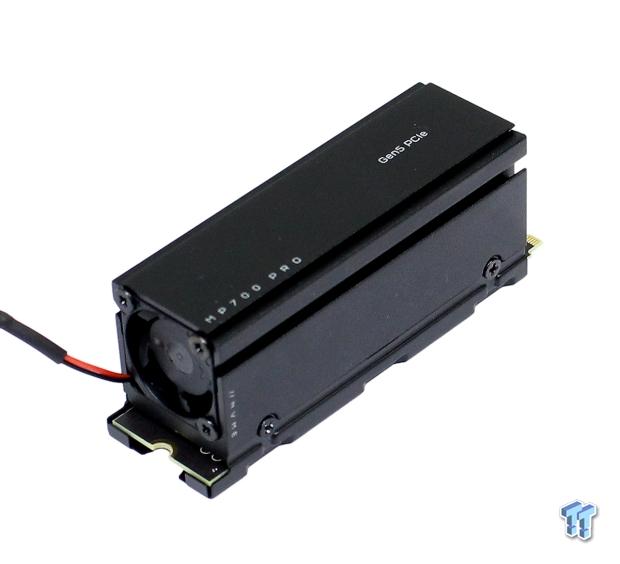
We find Corsair's MP700 Pro with heatsink outstanding in every way. It's as fast as it gets, as powerful as it gets, aesthetically elegant and cool running. Editor's Choice.

